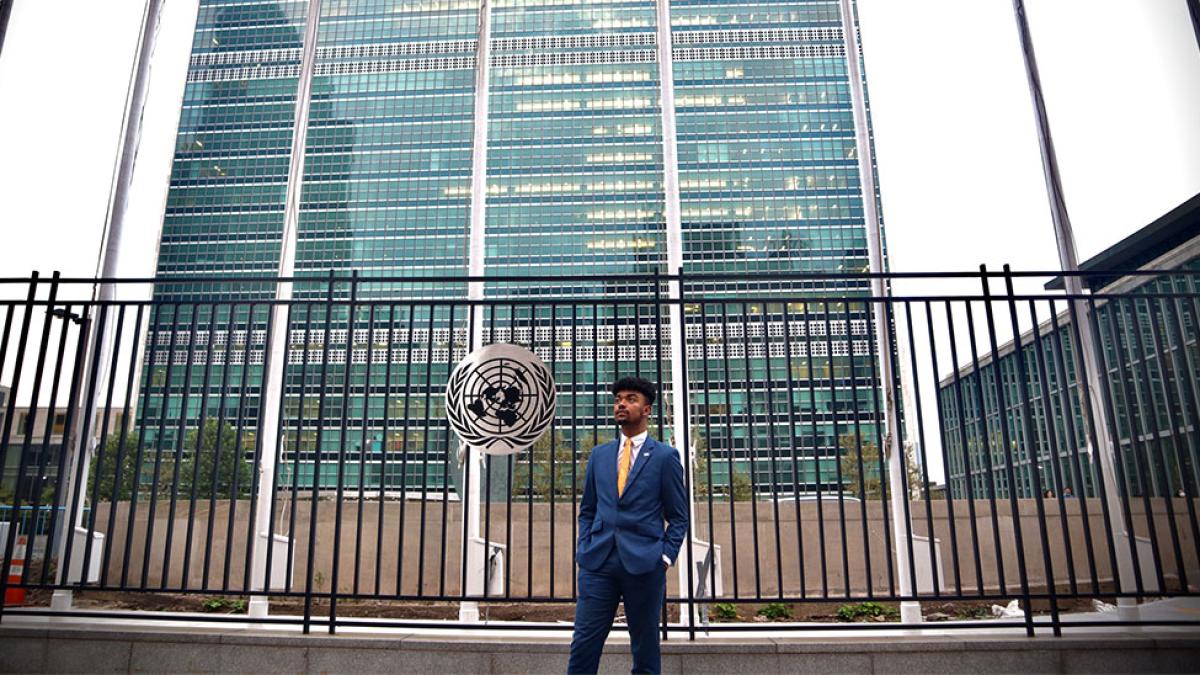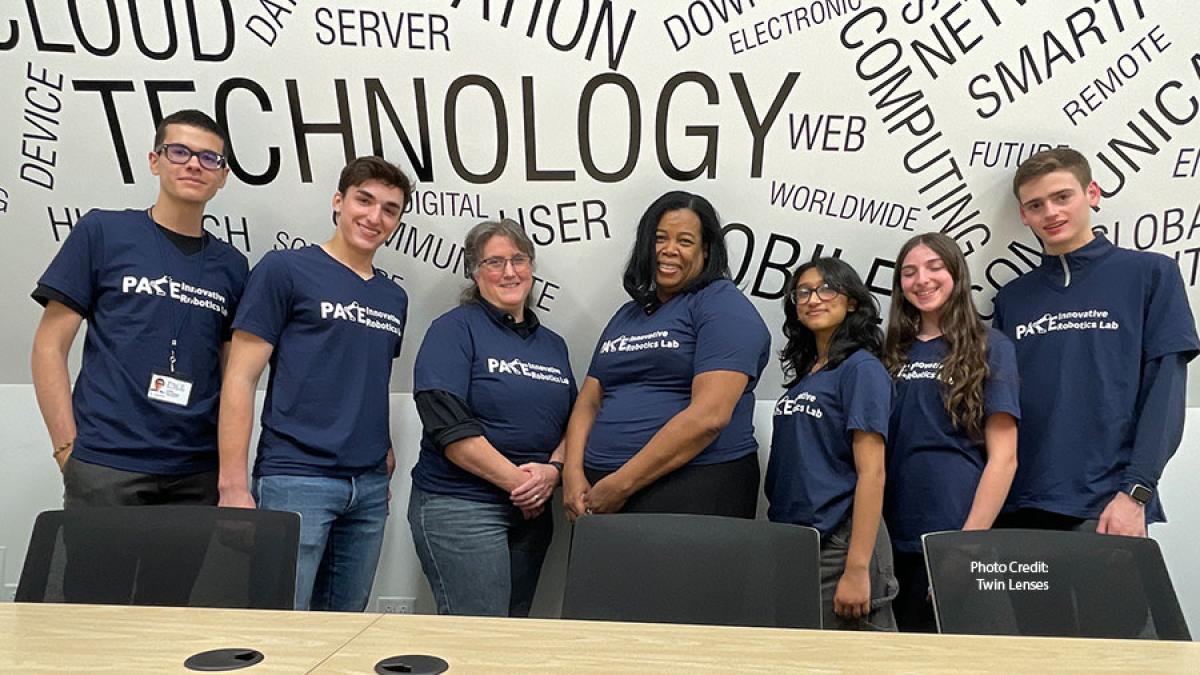Issues with your delivery? Lubin Assistant Professor Pritha Dutta, PhD, discusses global supply chains, and how the past few years have empowered consumers to rethink their consumption habits.
Fall 2022: Undergraduate Research Events
The Center for Undergraduate Research Experiences (CURE) is hosting a variety of events and webinars for undergraduate students and faculty. See what's coming up and how you can get involved.


The Center for Undergraduate Research Experiences (CURE), based in the Office of Research and Graduate Education, leads, supports, and facilitates student-faculty research collaborations throughout the Schools and Colleges of Pace University. The Center’s work is building upon forty years of undergraduate research in Dyson College as a high-impact educational practice that advances student success.
Here’s how you can get involved this fall as an undergraduate student or faculty member at Pace:
Fall 2022 Undergraduate Research Presentations (Virtual)
12:10 p.m.–1:10 p.m.
The University community is invited to attend the inaugural fall series of virtual research presentations by Summer 2022 Provost and Dyson Undergraduate Research Awardees. Check out all of the upcoming presentation sessions.
Undergraduate Student Research Webinar Series
Join the Center for Undergraduate Research Experiences for weekly webinars throughout the Fall 2022 semester that touch on a variety of topics related to student research. Once you register, you’ll receive a confirmation email with information about joining the meeting.
- Thursday, September 29 | 3:25 p.m.–4:25 p.m.
Topic: How to Get Started in Research across Majors and Schools - Wednesday, October 5 | 12:10 p.m.–1:10 p.m.
Topic: Social Justice and the Institutional Review Board (IRB) - Thursday, October 6 | 3:25 p.m.–4:25 p.m.
Topic: Social Justice and the Institutional Review Board (IRB) - Wednesday, October 12 | 12:10 p.m.–1:10 p.m.
Topic: Learn about CUR and the World Congress on Undergraduate Research—Apply to Present - Thursday, October 13 | 3:25 p.m.–4:25 p.m.
Topic: Learn about CUR and the World Congress on Undergraduate Research—Apply to Present - Wednesday, November 16 | 12:10 p.m.–1:10 p.m.
Topic: Preparing a Research Poster - Thursday, November 17 | 3:25 p.m.–4:25 p.m.
Topic: Preparing a Research Poster - Wednesday, December 14 | 12:10 p.m.–1:10 p.m.
Topic: How to apply for a National Science Foundation Research Experiences for Undergraduates (NSF REUs) - Thursday, December 15 | 3:25 p.m.–4:25 p.m.
Topic: How to apply for a National Science Foundation Research Experiences for Undergraduates (NSF REUs)
Faculty Webinar Series for Undergraduate Student Research
Join the Center for Undergraduate Research Experiences for weekly webinars throughout the Fall 2022 semester that touch on a variety of topics related to how faculty members can support student research. Once you register, you’ll receive a confirmation email with information about joining the meeting. If you have questions about Undergraduate Research contact Maria Iacullo-Bird, PhD, Assistant Provost for Research at miacullobird@pace.edu.
- Wednesday, October 12 | 12:10 p.m.–1:10 p.m.
Topic: Learn About CUR and the World Congress on Undergraduate Research - Monday, November 14 | 12:10 p.m.–1:10 p.m.
Topic: How to Get Started in Grant Writing and Include Undergraduate Research - Monday, December 12 | 12:10 p.m.–1:10 p.m.
Topic: How to Apply for National Science Foundation Research Experiences for Undergraduates (NSF Reus)
Fall 2022 Undergraduate Research Showcase
Tuesday, December 13 | Location and registration information TBA
Please attend to support student presenters! This event will feature the Provost’s Summer 2022 Student-Faculty Undergraduate Research Awardees.
More from Pace
Jeremiah Williams ‘23 has always been a talker. From his high school debate team to addressing the United Nations First Committee, Jeremiah recognizes the power of speaking up when it counts.
Want to learn more about Seidenberg? Ask T-Bot, the brainchild of the boundary-pushing Robotics Club on Pace’s Westchester Campus.
Professor Margot Pollans wins 2022 Goettel Prize for Faculty Scholarship
The Elisabeth Haub School of Law at Pace University is proud to announce that Professor Margot Pollans was awarded the 2022 Goettel Prize for Faculty Scholarship for her article, "Eaters, Powerless by Design" published by Michigan Law Review (120 Mich. L. Rev. 643 (2022)).
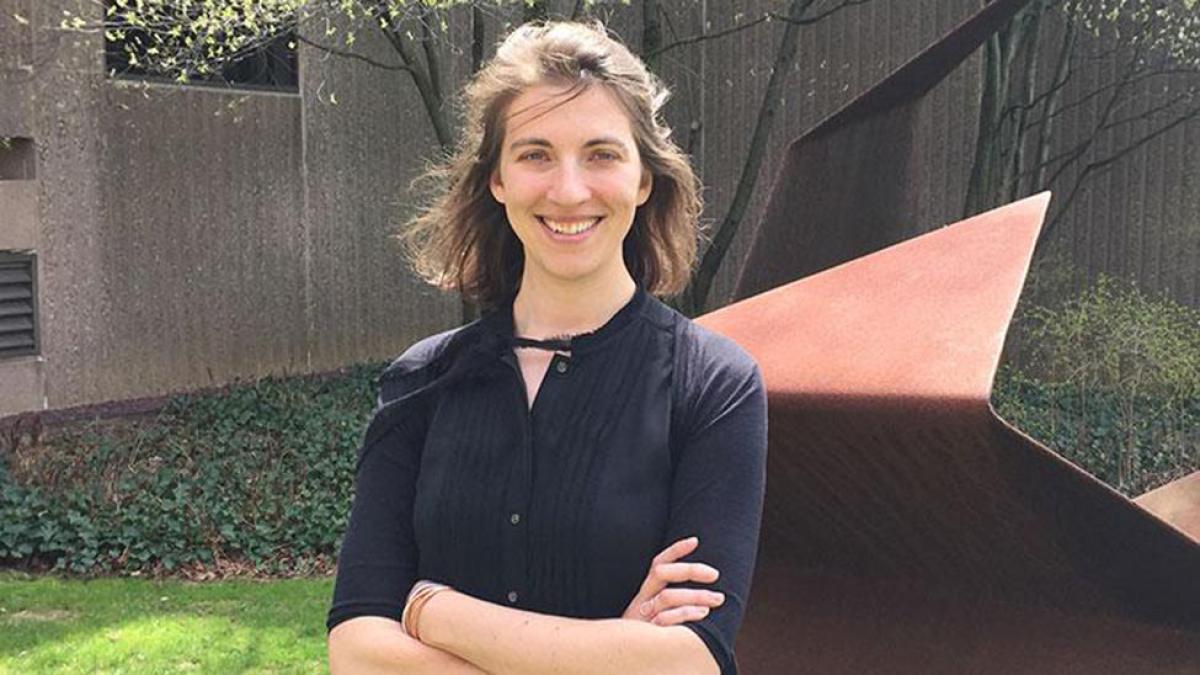
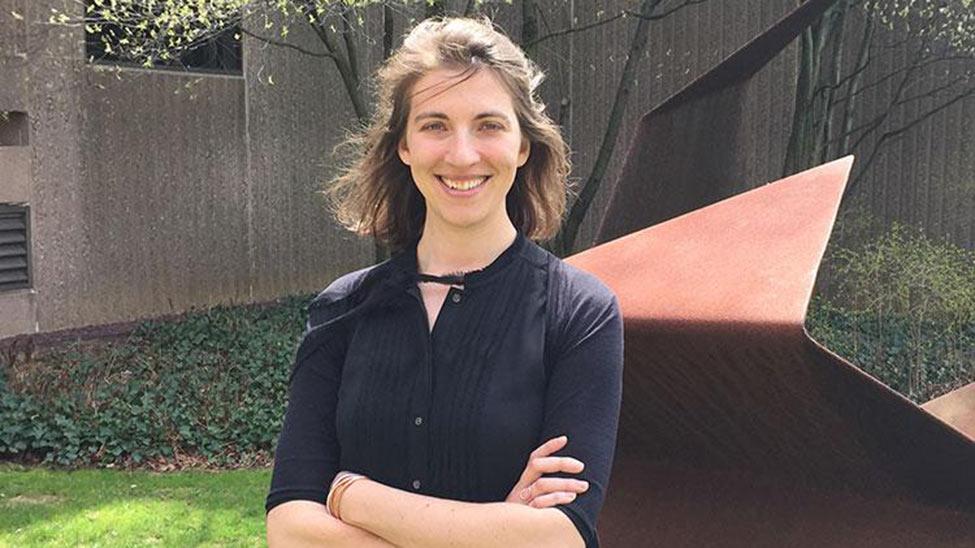
The Elisabeth Haub School of Law at Pace University is proud to announce that Professor Margot Pollans was awarded the 2022 Goettel Prize for Faculty Scholarship for her article, "Eaters, Powerless by Design" published by Michigan Law Review (120 Mich. L. Rev. 643 (2022)).
The Goettel Prize was created in 2004 to encourage and recognize outstanding scholarship by members of the Elisabeth Haub School of Law at Pace University faculty. Each year, members of the tenured and tenure-track faculty are invited to submit their work for consideration (on an anonymous basis) by a selection committee of outside reviewers. This year's committee consisted of three distinguished law school professors: Professor Katherline Macfarlane of Southern University Law Center, Professor Anthony Moffa of University of Maine School of Law, and Professor Jonah E. Perlin of Georgetown Law.
Associate Dean for Faculty Development and Operations and Professor of Law at the Elisabeth Haub School of Law at Pace University, Emily Waldman, noted, “Since joining our faculty in 2015, Margot Pollans has been a leader in building up our food law program, now known as the Pace Food Law Center. In her prize-winning article, 'Eaters, Powerless by Design,' she uses her wide-ranging expertise to offer a novel critique of the system as a whole. She points out that the system currently rests on two contradictory myths --the helpless consumer who needs government protection and the capable consumer who should be able to navigate the system on her own--and charts a course toward a path of better food governance. The piece is fascinating not only for food law experts, but for everyone who knowingly or unknowingly interacts with food law on a daily basis—i.e., all of us!"
“Food Law has received increased attention in recent years as a field of study and this article aims to provide an opportunity to study and understand the role that law takes in shaping what we eat. This year’s committee consists of experts at the top of their respective fields and I am so honored to have been selected by them to be awarded the 2022 Goettel Prize for Faculty Scholarship,” stated Professor Margot Pollans.
Professor Margot Pollans joined the Pace faculty in 2015. Professor Pollans’s primary research interests lie in the areas of food and agriculture law and administrative law. She is the Faculty Director of the Pace Food Law Center and the Shamik and Adrienne Trivedi Faculty Scholar. Before joining the Pace faculty, she was the inaugural academic fellow at UCLA School of Law’s Resnick Program for Food Law and Policy. Previously, Professor Pollans was a Staff Attorney and Clinical Teaching Fellow at Georgetown University Law Center’s Institute for Public Representation, where she worked on a range of environmental litigation and supervised student clinicians. Following law school, Pollans clerked for the Honorable David Tatel of the U.S. Court of Appeals for the D.C. Circuit. Her academic work has appeared in a variety of journals including in the California Law Review, the Ohio State Law Journal, the Columbia Journal of Gender and Law, and the Harvard Environmental Law Review. She is also the co-author of a casebook, Food Law: Cases & Materials.
Harmony Montgomery update – Mystery as warrant issued for girl’s stepmom & expert reveals impact of new witness info
Renowned law expert Bennett Gershman told The U.S. Sun this is part of the pre-trial chess match "that's part of basic trial fairness." "This is a game," said Gershman, a longtime professor at New York's Elisabeth Haub School of Law at Pace University. "Prosecutors are known to hold evidence favorable to the defense until the last minute. Fair play requires that this is disclosed as soon as the prosecutors know about it.
Agency General Counsels, Beware
Op Ed by Pace University’s Haub Law Professor Josh Galperin.
Your company’s policies and the law
Haub Law Adjunct Professor John Bandler speaks about corporate legal compliance in Westfair online.
Power & Politics: Debating the issues – the home stretch of the mid-term elections
Scott McGee is joined by former Democratic state Sen. David Carlucci and Pace University economics professor Mark Weinstock to debate the issues.
The complexity of mourning Queen Elizabeth II and questioning her legacy
Dyson Professor Melvin L. Williams provides insights to USA Today about the complexity of mourning Queen Elizabeth II.
Students Help Mark Annual 9/11 Remembrance in White Plains
Students from the White Plains Youth Bureau, Community Youth Court, Social Justice for Youth Program and Elisabeth Haub Law-Pace University Law took center stage at a 9/11 community gathering of remembrance and hope Sunday at Liberty Park in White Plains.
Big 10 2022: The 10 Most Represented Colleges on Broadway in the 2021–2022 Season
Pace University: Amanda Braun (Hamilton), Taylor Broadard (Hamilton), Gabi Campo (Beetlejuice), Mili Diaz (Wicked),Jamal Christopher Douglas (Paradise Square), Charlie Franklin (Tina: The Tina Turner Musical), Jeff Heimbrock (Wicked), Brandon Kalm (Waitress), Adam J. Levy (Moulin Rouge! The Musical), Nathan Levy (Dear Evan Hansen), John-Michael Lyles (A Strange Loop), Emily Rogers (Wicked), Analise Scarpaci (Mrs. Doubtfire), Cassidy Stoner (Aladdin), Bethany Ann Tesarck (Diana), Davis Wayne (Hadestown), Samantha Williams (Caroline, or Change), Zelig Williams (MJ The Musical), Daniel Yearwood (Hamilton)
Tapping Into the Beauty Industry with Kimberley Jarrett '06
On our first episode of The Lubin Link, alumna Kimberley Jarrett '06 discusses her passion for the beauty industry, how Lubin inspired her to find her footing in the business world, the messages from Lubin she still holds close to her today, and more.
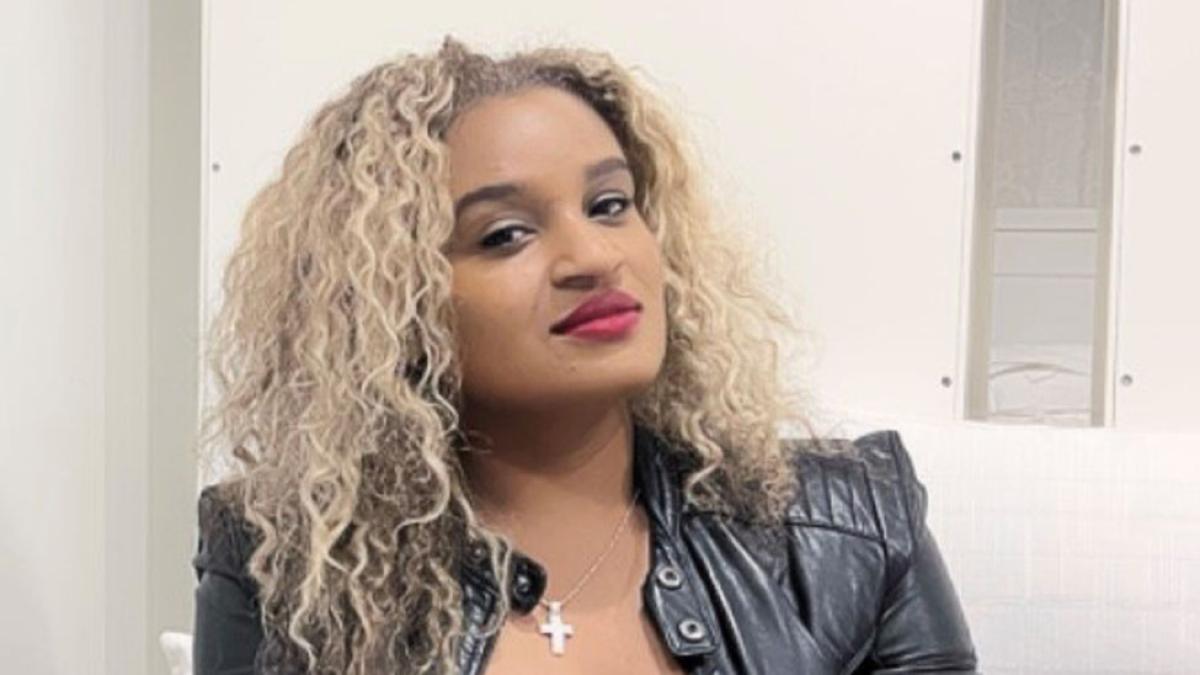
The Lubin Link Podcast

On our first episode of The Lubin Link, alumna Kimberley Jarrett '06 discusses her passion for the beauty industry, how Lubin inspired her to find her footing in the business world, the messages from Lubin she still holds close to her today, and more.
This episode was recorded on September 13, 2022.
Tune into the Lubin Link podcast to hear how guests went from go-getting Lubin students to successful entrepreneurs, social media mavens, directors, CEOs, and beyond. They offer their best tips to students and share how you can make the most out of your #LubinLife.

